Pronoun DefinitionNouns serve a variety of functions in our sentences. They successfully fulfill the important functions of acting as subjects and objects. But sometimes, a noun has to be paused, or a sentence doesn't include the right noun. When nouns need a guiding hand, whom are they supposed to contact? They prefer pronouns, not Ghostbusters (that itself is a noun). 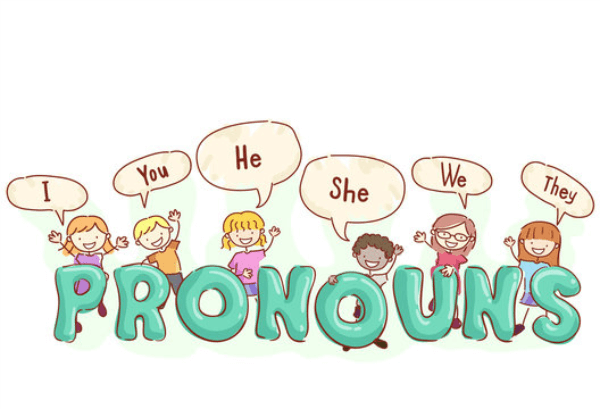
Pronouns have a significant role in speaking; utilizing them effectively will greatly enhance your oral and written communication. We use pronouns in sentences like "I'm proud of myself" or "I need your help." Pronouns can perform all the tasks that nouns do, most of which are simpler and much more flexible. A pronoun is used as a substitute for a noun and replaces nouns to avoid using the term more than once in a sentence or paragraph. Both singular and plural forms of pronouns are acceptable, and utilizing the verb in the phrase following the specific pronoun form is important. Pronouns can be broadly divided into three categories.
Pronoun DefinitionAccording to the Cambridge Dictionary, a pronoun is "a term that can be used in place of a noun or a noun phrase." Pronouns are "any of a limited set of words (such as I, she, he, you, it, us, or they) in a language that are used as replacements for nouns or noun phrases and whose publics are identified or understood in the context." The Collins Dictionary states that a pronoun is a word used to describe an individual or something when a noun is not necessary, frequently because the subject or object has already been named. Examples include "it," "she," "something," and "myself." Pronoun TypesPronouns can be divided into many sorts according to how they are used. Here are the different pronoun categories. Examine the cases closely to understand each pronoun type and its purpose thoroughly. 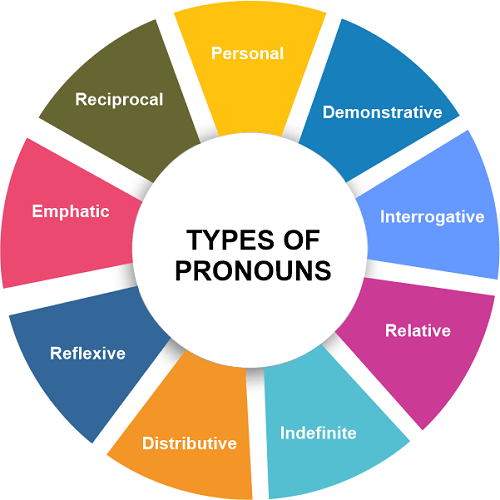
1. Relative Pronoun: Pronouns that link one component of the phrase to another are known as relative pronouns. The relative pronouns that, which, where, why, what, whom, and whose are a few examples. 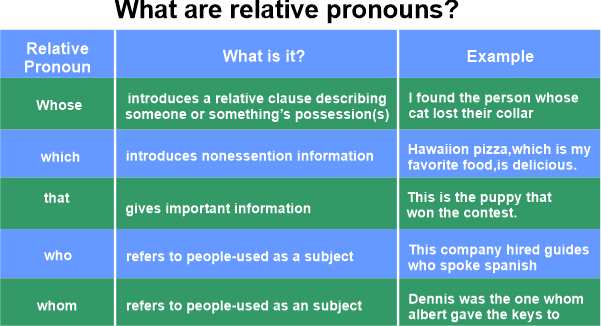
Example:
2. Possessive Pronoun: Possessive Pronouns are pronouns that indicate ownership. The possessive pronouns mine, yours, his, her, theirs, and its are a few examples. 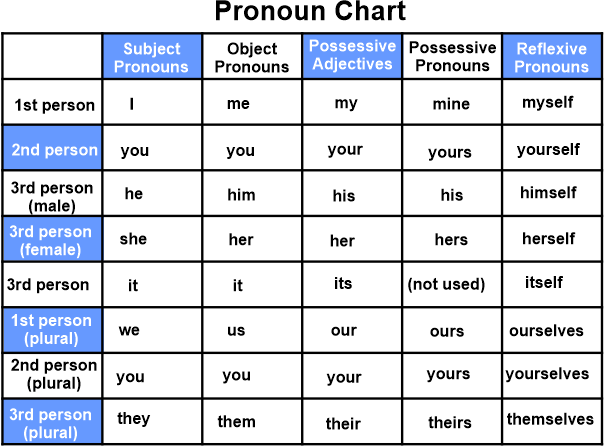
Example:
3. Reflexive Pronouns: Pronouns related to the sentence's subject are reflexive pronouns. Myself, yourself, itself, herself, himself, oneself, ourselves, themselves, and yourselves are a few examples of reflexive pronouns. 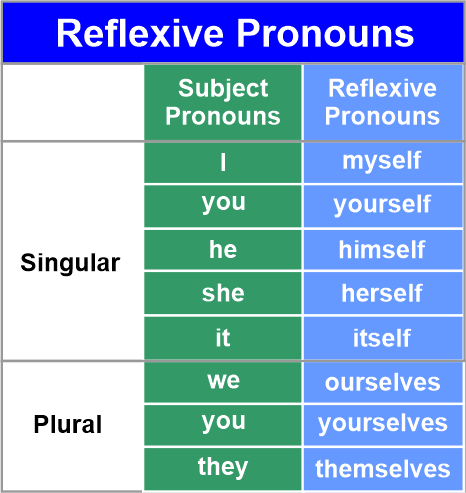
Example:
4. Demonstrative Pronoun: Pronouns that point to particular things are demonstrative pronouns. The demonstrative pronouns this, that, these, and those are a few examples. 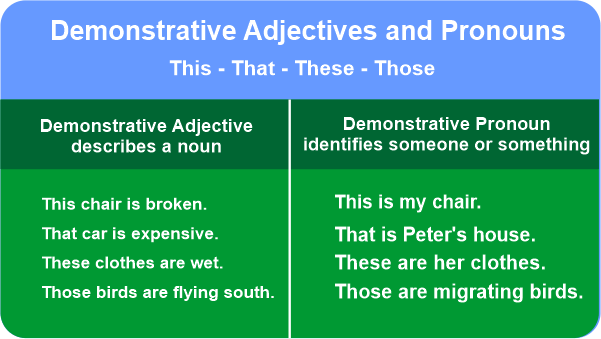
Example:
5. Interrogative Pronoun: Pronouns that ask inquiries are called interrogative pronouns. Examples of interrogative pronouns are when, why, who, what, and where. 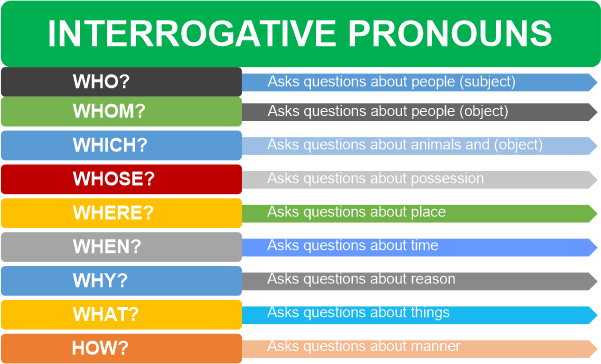
Example:
6. Indefinite Pronoun: Indefinite pronouns do not specifically refer to any person, place, or object. Someone, somebody, anywhere, something, everybody, anyone, everywhere, anything, no one, anybody, nowhere, everyone, nobody, somewhere, everything, none, each, few, and many are a few examples of indefinite pronouns. 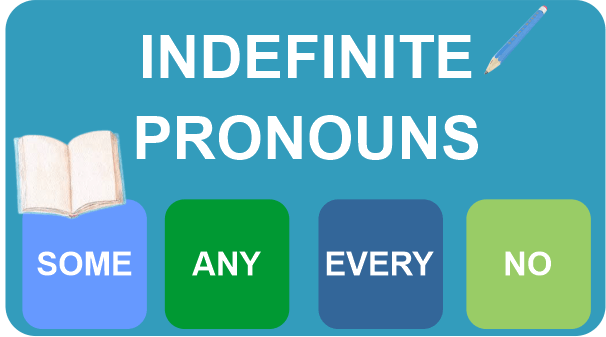
Example:
7. Personal Pronoun: Personal pronouns (also known as simple pronouns) replace proper names. Personal pronouns include I, me, you, him, us, her, him, her, us, them, and them. 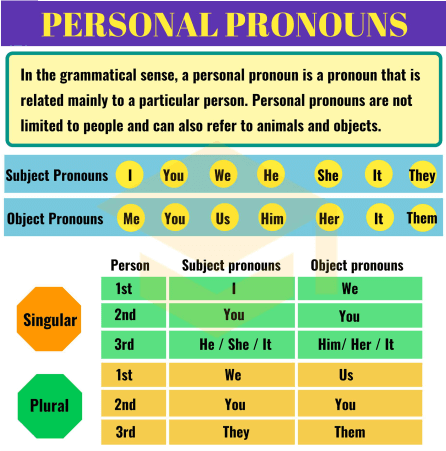
Example:
8. Reciprocal Pronoun: Pronouns that convey a reciprocal relationship is referred to as reciprocal pronouns. Each other & one another are a few examples of reciprocal pronouns. 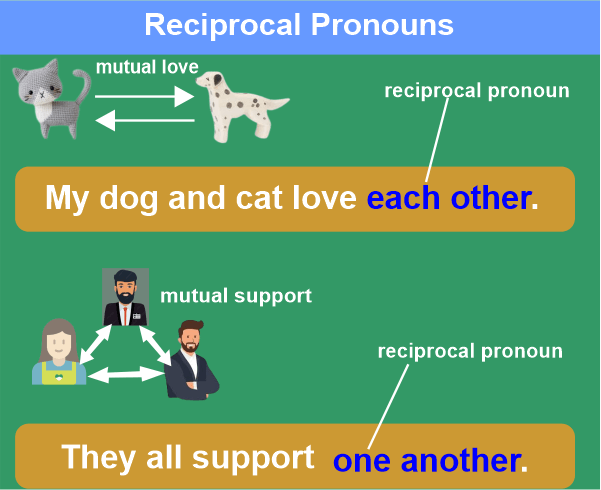
Example:
9. Intensive Pronoun: The sole distinction between intensive and reflexive pronouns is that the phrase would still sound right without the intensive pronoun. 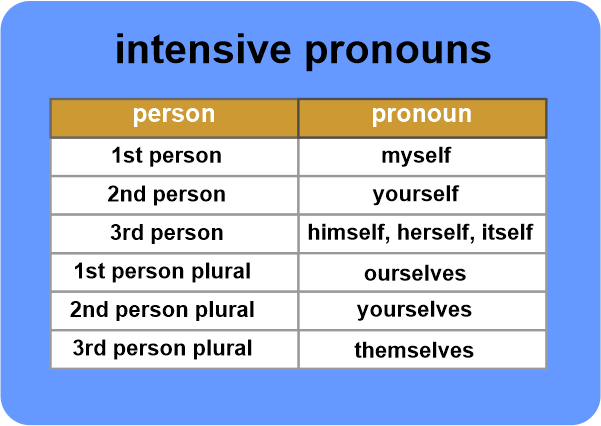
Example:
Other pronouns come in two different varieties, and they are: 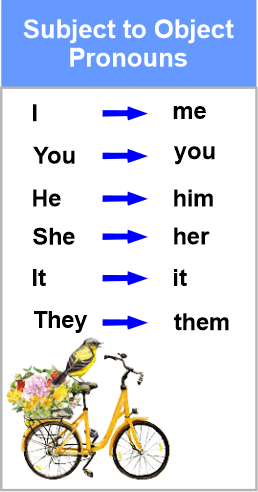
Subject Pronoun: Subject pronouns carry out the action of a sentence. The subject pronouns I, you, we, he, she, it, they, and one are a few examples. Object Pronoun: Pronouns that carry out the task in a sentence are called object pronouns. The object pronouns me, us, him, she, and them are a few examples. 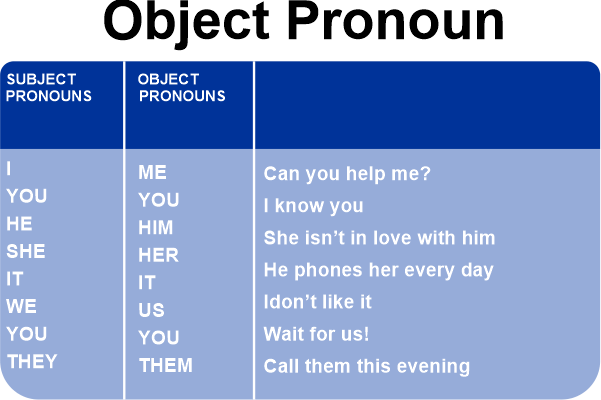
Nouns vs. pronounsPronouns are a very small class of words that seldom change over time, whereas nouns are a considerably larger class that is always growing. Nouns relate to objects, people, places, & concepts similarly to pronouns but with considerably more detail. 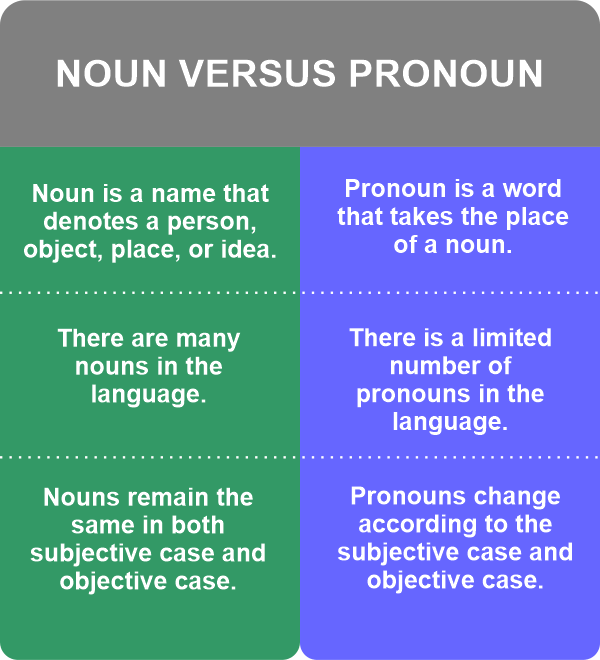
Nouns can serve as the stem of a noun phrase in addition to being the subject or object of a verb, much like pronouns. A full sentence can be merely a noun+verb, as in the case of "Priyank talked," or it can be made up of a pronoun+verb, as in "He spoke." Nouns are fixed in form, unlike pronouns, which alter their spelling to fit their grammatical function in a phrase. For example, the word "man" remains the same even when the third-person male pronoun "he" changes to "him" when used to describe an object. Rule of PronounsWhen using pronouns, there are a few key rules to follow. You'll quickly discover that pronouns are simple to use. 1. Sentences can start with subject pronouns. Example: We did a fantastic job. 2. The subject may also be renamed using subject pronouns. Example: It was he who agreed we should go to Goa. 3. There are no antecedents for indefinite pronouns, and they can stand by themselves. Example: Nobody enjoys the sound of fingernails on a chalkboard. 4. Object pronouns can be used as direct, indirect, and prepositional objects. They are You, I, him, her, them, us, and it. Example: David spoke with her about the error. 5. Ownership is indicated through possessive pronouns. Apostrophes are unnecessary for them. Example: These books are mine, not yours. Pronoun examples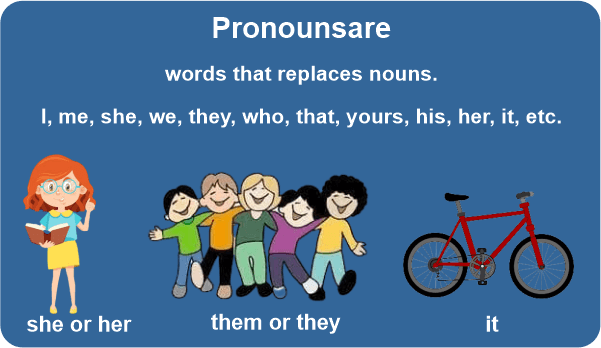
Next TopicVerb Definition
|
 For Videos Join Our Youtube Channel: Join Now
For Videos Join Our Youtube Channel: Join Now
Feedback
- Send your Feedback to [email protected]
Help Others, Please Share









